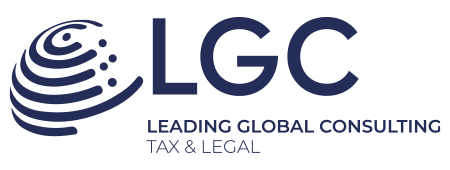I. Introduction
Following the amendments made to Council Directive 2006/112/EC by Directive (EU) 2025/1539, suppliers or taxable persons not established in the European Union (EU) have new tax obligations if they do not use the IOSS scheme, which aims to improve VAT collection. The IOSS or Import One-Stop Shop regime means that sellers selling from outside the EU can declare and pay VAT in a single EU country, without having to register in each Member State to which they send products. The aim of this amendment is to combat tax fraud and simplify procedures for businesses selling goods to consumers in the EU from outside the EU.
II. Key amendments to the VAT Directive
1. Obligation to appoint a tax representative
Suppliers not established in the EU who supply goods or services to final consumers and do not use the IOSS scheme must appoint a tax representative. This representative is responsible for complying with all VAT obligations. However, this obligation does not apply if the supplier is located in a country included in Commission Implementing Decision (EU) 2021/9421 , or in a country with which the Member State of importation has signed a mutual assistance agreement in tax matters. The conditions for appointing such a tax representative must be similar to those required for intermediaries under the IOSS regime. Therefore, certain suppliers not established in the EU may be required to have a tax representative for both VAT on imports and VAT on distance sales in each Member State where they make deliveries. However, where the Member State of importation is the same as the Member State of final destination of the goods, a single tax representative may suffice.
2. Special mention of customs representatives
Indirect customs representatives may optionally be held liable for VAT on imports when acting as tax representatives for the person liable for the tax. However, even if they have not opted for this, Member States may, in order to ensure the correct collection of VAT, consider them jointly and severally liable for the tax. Member States should also have the power to jointly and severally demand payment of VAT on imports from other persons liable for the tax, such as those liable for the customs debt, in the event of customs irregularities.
3. Abolition of the special scheme attributing the debt to the purchaser
Until now, there was a special scheme whereby, in some cases, the purchaser was considered the VAT debtor on imports. This led to inconsistencies, as the aim is for the supplier or the taxable person considered to be the supplier to assume that responsibility. For this reason, this regime has been abolished: from now on, it will be the sellers who are directly liable for VAT on these transactions.
III. Transposition of the directive
Member States must adapt their national legislation to implement these changes. The deadline for adopting the new rules is 30 June 2028, and they will apply from 1 July 2028.
IV. Key aspects
1. Mandatory tax representative: Sellers outside the EU who do not use IOSS must appoint a tax representative to fulfil their VAT obligations.
2. The IOSS regime allows VAT to be managed through a single portal in the EU.
3. The supplier is always liable for VAT on imports and distance sales, eliminating the previous regime where the purchaser could be considered the debtor. In addition, customs representatives may be jointly and severally liable to ensure payment.




